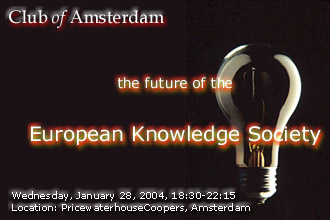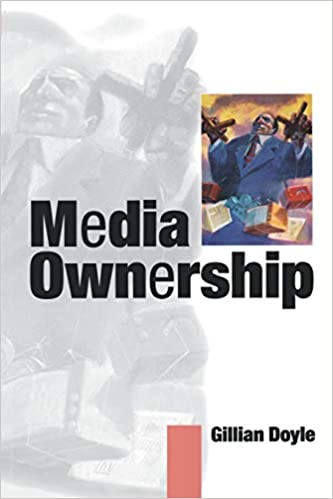
Content
Q&A with Wendy L. Schultz
 Wendy L. Schultz, Futurist, Oxford, UK
Wendy L. Schultz, Futurist, Oxford, UK
Club of Amsterdam: In your work as a futurist you discuss preferred as part of possible futures. How can we determine how preferred futures look like?
Wendy L. Schultz: Preferred futures are defined by their complementarity or congruence with specific value sets. They are, by definition, subjective. I may look at a given image of a possible future and find it delightful, ideal, a utopia: you may look at the same image and see only a nightmare. Thus the best we may do as futures researchers is facilitate: assist as many people as possible in articulating their individual preferred futures, and then nurture a dialogue to explore those myriad images and discover points of congruence and complementarity; to elicit common themes and characteristics which we can all agree would create a better future. This would ideally go hand-in-hand with a deep conversation mapping both the individual and the jointly held values of this community of visionaries.
Thus determining what preferred futures look like must be an endeavour of collaborative creation, involving values clarification and mapping; vision articulation that taps both the logical extrapolation of current trends, the systemic understanding of interrelated changes, and the creative, intuitive visioning of new possibilities; and considerate, and well-considered, conversation.
Do you feel that the current efforts to create a European Knowledge Society will in fact bring preferred futures closer?
Wendy L. Schultz: Any systematic thinking about possibilities for the future allows for greater understanding of potential decision points, or points where the momentum of change may be leveraged. If clearly communicated, that understanding, and the logical, systemic, and creative thinking behind it – not to mention the data gathered describing emerging change – can in turn contribute to clearer debate within the community involved on the trade-offs that will necessarily need to be made in negotiating the positive and negative impacts of any action subsequent to a policy or planning decision. Given that the current efforts to create a European Knowledge Society involve data-gathering, logical extrapolation of trends, systems analyses of interactions and interrelationships among trends, and creative imaging of the possibilities that may emerge, and follow those futures research efforts with public communication and discussion of the results, then yes, I think that current efforts may indeed make a preferred future
more possible.
What must be considered when creating preferred futures, however, are the likely residents of those futures. To what extent are they involved in these deep dialogues constructed images of preferred futures, and paths to them? Reaching a truly transformative preferred future will require at least a generation (25 years, +/- 5); our discussions and actions today merely lay the groundwork for transformative change in worldviews, values, and economic, political, educational, and technological structures. Yet our values were formed (as age cohort analysis tells us) by shared historical experiences and cultural milieux – not to mention educational systems the basic structures and values of which were laid down centuries ago. In short, participants and practitioners in the hierarchical, authoritarian, empirically-focussed, Newtonian educational and knowledge infrastructure of the present are perhaps ill-suited to encompass all the design possibilities for a Knowledge Society whose most active members will grow up in a milieu characterized by complex adaptive systems, participatory and collaborative relationships, and a far more decentralized and holistic worldview. We were born in Cartesian boxes; they were not (although traditional educational systems may have attempted to stuff them into some). How many members of generation X, or the millennials, are participating in – or, for that matter, leading – this process? To what extent can these efforts to design a preferred “Knowledge Society” be considered legitimate if they are not involved?
How can futures studies be beneficial to business, government and NGO’s?
Wendy L. Schultz: Let me count the ways. To continue with the theme I began above, one benefit (in no particular order of priority) is the ability to challenge people’s assumptions, helping them move beyond the tunnel vision of daily priorities, and see the broader context within which they are living, working, learning, playing, making decisions, and acting. Futures studies is by its very nature and by its historical roots a transdisciplinary and systems-science-based academic discipline and intellectual endeavour. Straddling the sciences and the humanities, it demands not only acute observation and logical rigor, but also unfettered creativity and the ability to identify and analyse systemic interrelationships. It is an excellent discipline for mastering clear thinking. Given its five key activities – identifying and monitoring change; extrapolating and critiquing the impacts of change; imagining alternative possible outcomes and contingencies; envisioning preferred futures and articulating goals clearly; and planning and managing change – it also provides one of the best possible curricula for transformative leadership.
More specifically, both the opportunities and the challenges arising today and in the decades to come demand foresight. Change is not only moving faster, it is moving farther: an idea leaps from a gleam in an inventor’s eye to prototype to product to global distribution in months rather than years; impacts therefore also go global quickly. And all around the world, our different cultures, values, political and
economic systems respond differently, so the secondary and tertiary impacts may themselves create transformative change.
In this context, futures studies, futures research, and futures methodologies can provide at least five specific benefits: early warning of changes and their impacts; contingency planning based on scenarios depicting alternative outcomes; enhanced creativity in generating products or policies using scenarios as challenging new contexts; long-range goal-setting and innovative structural transformation via visioning; and pre-empting conflict over plans and policies by participatory change management.
Wendy L. Schultz speaks at our Club of Amsterdam Event about
the future of the European Knowledge Society on Wednesday, January 28, 18:30-22:15!
About the future of the Knowledge Society

Arab Human Development Report 2003
Building a Knowledge Society
“AHDR 2002 challenged the Arab world to overcome three cardinal obstacles to human development posed by widening gaps in freedom, women’s empowerment and knowledge across the region.
Looking at international, regional and local developments affecting Arab countries since the report was issued confirms that those challenges remain critically pertinent and may have become even graver, especially in the area of freedom. Nowhere is this more apparent than the status of Arab knowledge at the beginning of the 21st century, the theme of this second report. Despite the presence of significant human capital in the region, AHDR 2003 concludes that disabling constraints hamper the acquisition, diffusion and production of knowledge in Arab societies. This human capital, under more promising conditions, could offer a substantial base for an Arab knowledge renaissance.
The Report affirms that knowledge can help the region to expand the scope of human freedoms, enhance the capacity to guarantee those freedoms through good governance and achieve the higher moral human goals of justice and human dignity. It also underlines the importance of knowledge to Arab countries as a powerful driver of economic growth through higher productivity.
Its closing section puts forward a strategic vision for creating knowledge societies in the Arab world based on five pillars: Guaranteeing key freedoms; Disseminating quality education; Embedding science; Shifting towards knowledge based production; and Developing an enlightened Arab knowledge model.
AHDR 2003 makes it clear that, in the Arab civilization, the pursuit of knowledge is prompted by religion, culture, history and the human will to achieve success. Obstructions to this quest are the defective structures created by human beings- social, economic and above all political. Arabs must remove or reform these structures in order to take the place they deserve in the world of knowledge at the beginning of the knowledge millennium.”

World Development Report 2004: Making Services Work For Poor People
Broad improvements in human welfare will not occur unless poor people receive wider access to affordable, better quality services in health, education, water, sanitation, and electricity. Without such improvements in services, freedom from illness and freedom from illiteracy – two of the most important ways poor people can escape poverty – will remain elusive to many.
The World Development Report 2004: Making Services Work for Poor People says that too often, key services fail poor people – in access, in quantity, in quality. This imperils a set of development targets known as the Millennium Development Goals (MDGs) which call for a halving of the global incidence of poverty, and broad improvements in human development by 2015.
News about the Future
Radio Frequency Identification (RFID)
“Systems that read or write data to RF (Radio Frequency) tags that are present in a radio frequency field projected from RF reading/writing equipment. Data may be contained in one (1 ) or more bits for the purpose of providing identification and other information relevant to the object to which the tag is attached. It incorporates the use of electromagnetic, or electrostatic coupling in the radio frequency portion of the spectrum to communicate to or from a tag through a variety of modulation and encodation schemes.”
Privacy advocates are sounding alarm bells but the day of the radio frequency identification (RFID) tag is upon us, according to research company IDC. At its simplest end, RFID technolgy consists of a passive radio beacon implanted in products and a “reader” that bounces a signal out and records what the tag sends back. That data set can include an enormous number of variables, from individual product identification codes to such minutia as a use-by date or manufacture information.
Intel has teamed up with Carrefour, Metro Group and Tesco to form a European working group to accelerate the use of radio frequency identification (RFID) and EPC (Electronic Product Code) technology, which is being touted as the successor to barcodes in retail supply chains.
HEALTHCARE
Grid technologies for the medical community
Powerful computer simulation tools have been developed to assist doctors in diagnosis, pre-operation planning and surgery. So powerful in fact that many of these tools cannot be run efficiently on normal computers. The Grid, however, is much more than a normal desktop – it is a vast interconnected collection of computers, programmes and people. The IST project GEMSS is harnessing the Grid’s processing power to place it in the hands of medical practitioners.The GEMSS project plans to present the first prototype of its Grid middleware at the end of February along with a testbed that will be one of Europe’s first computing and resource Grids for clinical use, allowing easy access to advanced simulation and image processing tools operating at levels of speed and efficiency that conventional local hospital systems cannot match. Developed by 10 partners from academia and industry, GEMSS (Grid-Enabled Medical Simulation Services) incorporates tools designed by previous European medical projects such as BloodSim, SimBio, COPHIT and RAPT that created effective but complex and computationally demanding aids.
FOOD & BIOTECH
Scientists create “antibubbles” in Belgian beer
Physicists from the University of Liège in Belgium have succeeded in creating antibubbles (the exact opposite of bubbles) in one of Belgium’s most famous exports – beer – demonstrating what British real-ale drinkers have claimed for a long time: that Belgian beer actually is a lot like dish-water!
Research reveals for the first time how antibubbles form and move through a liquid. Antibubbles are the exact opposite of bubbles and move down instead of up. Whereas a bubble is a thin flim of liquid in air and which encloses a pocket of air, an antibubble is a thin film of air made inside a liquid, enclosing a pocket of that liquid. Scientists have known about them for almost a century but why and how they form has been a mystery until now.
Wednesday, January 28, 2004
“Einstein year” in 2005
Germany will hold an “Einstein year” in 2005 to help boost interest in scientific research and stimulate innovative partnerships between science and industry, the government says.
“What we need above all is simply a change in thinking,” Education and Research Minister Edelgard Bulmahn told German radio. “Because we are very good in research, but we are frequently too slow in applying research results.”
The initiatives, which include a campaign to promote the “Made in Germany” label as a mark of quality manufacturing, are intended to improve ties between researchers and industry.
Recommended Book
The Future of Knowledge: Increasing Prosperity through Value Networks
by Verna Allee
Verna Allee, whose groundbreaking book ‘The Knowledge Evolution’ helped usher in the exploding field of knowledge management, has brought her experience-tested insights into an exciting new synthesis, penetrating to the very heart of value creation. ‘The Future of Knowledge’ strips away traditional business thinking to reveal the new patterns of management thought and practice essential for success in a more complex world.
Sponsor & Supporters of the Club of Amsterdam event about ‘the future of the European Knowledge Society’ on Wednesday, January 28, 2004 are:
Sponsor:

Supporters


The Club of Amsterdam Round Table: Homme Heida

Homme Heida
Transparency
An individual member of society in the future will be even more followed from the cradle to the grave than this is the case today. Registration of his personal facts is not only for the sake of his health and education, but also because of what he says, does and even thinks. The span of control of family, friends, employer, insurance company, party and government will be wider and deeper. People will demand for openness and honesty for safety reasons because it is clear that after September 11 just one man can ruin our world.
This transparency for the sake of security will take away a large part of what we consider today as our privacy. It forces the individual to turn to the mainstream of the society or go voluntarily into exile. Any misconduct of eccentricity can be held against a person. The database doesn’t lie and is always available for everybody.
Therefore we must learn to live with a new sense of truth and reality and what is politically just. This asks for an even better education for everybody. Children will grow up in a socially more complex world and have to play more different roles. To be successful in the future one must become a professional actor and show less emotion. An inner struggle can already put a wrong expression onto ones face. Freedom of choice will not be something from the past, but gets a new definition. It is the price we have to pay for a healthy life and a safe future in a more dynamic and interactive world.
Club of Amsterdam Events 2003/2004
| October 28, 2003 | the future of Food & Biotech |
| November 27, 2003 | the future of the Media & Entertainment Industry |
| January 28, 2004 | the future of the European Knowledge Society |
| February 18, 2004 | the future of Education & Learning |
| March 31, 2004 | the future of Energy – the Hydrogen Economy? |
| April 28, 2004 | the future of Healthcare & Technology |
| May 19, 2004 | the future of Architecture |
| June 23, 2004 | the future of Culture & Religion |






Customer Reviews
Thanks for submitting your comment!